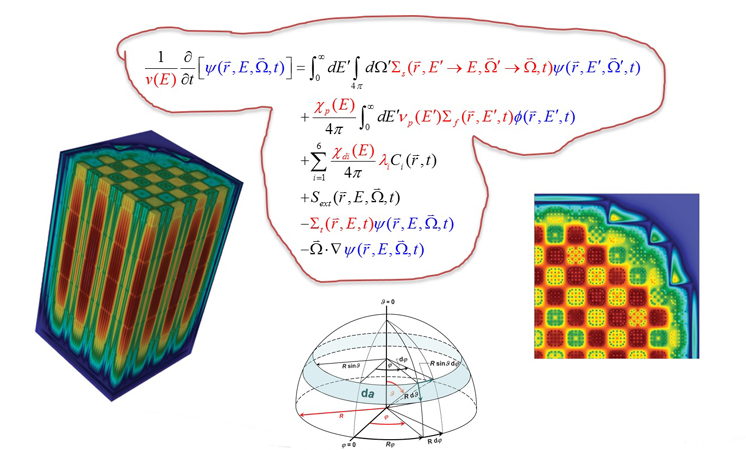Developing Neutron Transport Code Framework and Beyond

The neutron transport theory is the fundamental theory describing the neutron flux distribution in nuclear reactor systems. The neutron flux can be subsequently used to determine the reactor criticality and reactor power. Linear Boltzmann transport equation (LBTE) is the single mathematical model that completely covers the neutron transport theory in reactor calculations. LBTE is an integro-differential equation that determines the neutron flux distribution as a function of seven independent variables, demonstrating the spatial, energy and angular decency of neutron in a reactor system.
The LBTE is in a nature of so many mathematical complexities that advanced numerical methods have to be used to solve it. Efficient and accurate numerical schemes for the LBTE will consistently and persistently pursued in the Reactor Physics Lab at VCU. The ongoing research topics of computational methods for LBTE encompass computational linear algebra, iterative methods, as well as many advanced numerical topics in solving partial differential equation (PDE). Students engaged in this work through the VIP program will be educated with well-round computational methods in solving the LBTE and trained with hands-on programming skills in developing LBTE code framework for solving realistic nuclear reactor problems.
Projects will include:
- Design and develop a code framework that is capable of solving the LBTE in 1-D/2-D problems
- Develop various spatial, energy, and angular discretization approaches in to the framework
- Implement numerous transport acceleration schemes in the framework to improve the code performance efficiency
- Demonstrate the code viability with many benchmark problems
Interested? Contact Prof. Zeyun Wu (zwu@vcu.edu)